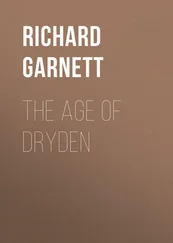He’d had to do something to occupy his time, and to maintain their cover. So, although Dexter wanted to remain on the roof, scanning the skies until Charlotte returned, he forced himself to attend to the business that had brought him to Nancy, and made an appointment with Arsenault, the man Cormier had recommended. He spent the morning trying not to think of her, trying to think of glass instead, with moderate success.
Slight language barrier aside, Dexter found he had little trouble communicating with the young French glassmaker. More than once already that morning, he’d found himself silently thanking Cormier for sending him to Arsenault for this project. Even through his concern about Charlotte, he could tell the dynamic young Frenchman understood what he needed and could create whatever the project required, even if Dexter himself wasn’t quite sure what that was.
“What I’ve pictured, though, involves a much greater distance. Perhaps a mile or even more. And there is also a need for the system to be somewhat sturdy.” At the young man’s blank look, Dexter strained for another word. “Strong? Resistant?”
“Oui, résistant,” Arsenault said with a smile. “It is not a single glass tube, what you require. Many, together,” he explained, bending to the page and rapidly sketching a cross-section of a bundle of tubes. “Inside a case, comme une saucisse . The only importance is the reflection of the light inside. And that you have not the loss of light over distance.”
Dexter finally realized the man was comparing the design to a sausage. An external casing, holding all the gathered glass filaments inside and helping the light remain on the desired path without leaking out. “From a light source at one end, all the way to the other, even if the tubes are bent, correct?”
The young Frenchman nodded, his sandy hair flopping forward into his eyes. He tossed his head impatiently, looking even more like a schoolboy than he already had.
“And it must also be waterproof,” Dexter said, presenting the final requirement.
Arsenault blinked a few times and then smiled. “Fresh water or salt water, monsieur ?”
Dexter eyed him warily before answering. “Salt.”
Suddenly the Frenchman looked nothing like a schoolboy; his eyes were all too knowing, his shrug all too mature. “Just as it is with Monsieur Murcheson. Always the salt water. The flooding, it must be terrible in Le Havre.”
After another moment, Dexter gave a shrug of his own. “The high cost of maintaining our proximity to England and the shipping routes.”
“One week,” Arsenault said, tracing Dexter’s sketch with his fingers. “If the distance is as you say, I can deliver your filaments to Le Havre in one week.”
* * *
THE NEWS OF the factory explosion had reached Nancy by the midday post. Dexter, sleepless and out of sorts with worry already at the ominous silence of the telegraph receiver, had to read the headline three times before his rough mental translation finally sank in.
“Charlotte!” he blurted, drawing curious looks from the other patrons in the sidewalk café where he sat over luncheon.
Flustered, he coughed and pretended to take a sip of coffee while his mind roared in an agony of fear. The grainy photograph of the still-smoking factory stared up at him from the paper on the table.
She knew something like this would happen. Somehow, she knew , he kept thinking. And he thought of their parting—he so cavalier and straightforward, Charlotte so efficient and brave. He had pretended the danger was negligible, and he would regret that pretense for the rest of his life if anything had happened to her.
“I should have told her I loved her,” he whispered at his coffee.
Now she might be gone, burned to ash, as if she’d never been. All he could do was wait for more news. Dexter thought the wait might kill him too.
SOMEWHERE IN THE FRENCH COUNTRYSIDE, AND NANCY, FRANCE
WET. SLIMY.
A slithery touch and the sharp smell of cut grass directly under her nose woke Charlotte from her fitful slumber. She opened her eyes and nearly screamed at the monster she saw before her, until her eyes and brain sorted themselves out and she realized it was only a cow.
It had seemed like a monster in part because she was viewing it upside-down, as she was lying on her back in an empty hay wagon and her head was slipping off the open end onto the sloping tailgate. And in part because it was very, very close; the cow had evidently mistaken Charlotte’s sweaty, unwashed face for a salt lick.
In one swift move, Charlotte swung away from the cow and into a crouch on the bed of the wagon, scuttling backward to put even more distance between herself and the bovine creature.
The cow, unperturbed, began sampling the tufts of hay caught between the rough planks of the wagon’s side. Satisfied the beast meant her no harm, Charlotte looked around to assess her situation, wiping her horribly moist face on her sleeve as she did so. The assessment didn’t take long.
She was in a field somewhere outside Paris, there were no nearby farm buildings, and a gently persistent reddish-brown cow was eyeing her with what Charlotte could only read as curiosity. When it lowed at her, she shushed it automatically.
From what she could see it was very early morning, as the sun was up but dew still dampened the shorn, trodden timothy grass of the field. The chronometer from the Gossamer Wing ’s instrument panel confirmed this. Ravenous, aching from her flight and the few hours’ dubious rest in the wagon, Charlotte pondered what to do next.
“Can’t walk to the nearest town, can I, Bossie? Are French cows called Bossie? I’m hardly dressed for visiting a country village, but I don’t think I can go a full day without eating either.” She tipped her head to examine the cow’s belly. “Hmm. I don’t think I’m quite desperate enough to try my hand at milking a cow, however.”
Bossie mooed again, and Charlotte heard a late-rising rooster crow as if in response. It was time for her to find cover, food or no food. With a last regretful look at the cow’s udders, Charlotte tucked the leather harness of the Gossamer Wing under one arm, stuffed the voluminous midnight blue folds of the balloon under the other, and took firm hold of the gas rigging to keep it upright as she leaped from the wagon and started toward the nearest stand of trees.
* * *
THAT DAY, CHARLOTTE added theft to her list of dubious accomplishments.
It’s only sort-of theft , she reassured herself as she wiped the black kohl from her face and neck with the clean cloth and butter she’d found in the farmhouse.
She’d left enough coin to pay for the cloth, butter and sprigged pale blue cotton dress many times over, right there on the table in the kitchen. Surely the farmer’s wife wouldn’t bemoan the missing items too long.
“I could hardly have walked up and asked somebody to sell me the things,” Charlotte explained to Bossie, who had turned up at the side of the stream in the wood adjacent the hay field. “I was dressed like a cat burglar, after all.”
She wondered if the cow was a runaway, or simply had the run of the place. A faded brand marked her as somebody’s property, but she seemed to inhabit the wood and the field rather than a fenced pasture or a barn as Charlotte would have expected a cow to do.
The dress was a bit too long and a good deal too wide, but it was cool and wouldn’t look suspicious if Charlotte ventured into the village she’d scouted a few miles away.
“My French may not be as good as Reginald’s was,” she told the cow when she’d cleaned herself up as much as she could, “but I think I can pass for a French milkmaid just this once. I just hope the farm wife doesn’t see me and recognize her dress. Wish me luck, Bossie. I’m off to the village, and shall take no prisoners!”
Читать дальше












